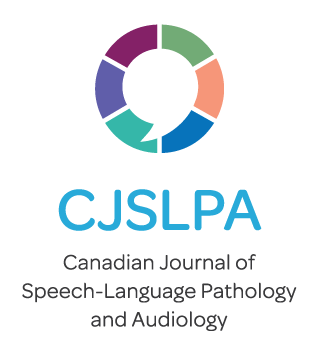

| Author(s) |
Charles D. Hughes Rodney M. Gabel Alexander M. Goberman Stephanie Hughes |
| Volume | 35 |
| Number | 1 |
| Year | 2011 |
| Page(s) | 45-55 |
| Language | English |
| Category | |
| Keywords |
qualitative stuttering therapy and family |
| Abstract |
This study utilized a qualitative approach to explore the family experiences of seven adults who stutter. These family experiences were examined with respect to family interactions and coping with stuttering and speech therapy, along with an investigation of how the family interactions affected speech therapy and the ability of participants to manage their stuttering. The thematic analysis of semi-structured interviews revealed three major themes. The first major theme was the support participants desired from their families, which included a desire for role models as well as additional emotional support. The second major theme was support received by participants. In general, few participants perceived helpful support from their families regarding their stuttering. The third major theme was the perceived barriers to the support desired by participants, which included the pressure to be fl uent, a lack of communication regarding stuttering and speech, and the good but often misguided intentions of family members. Suggestions for the continued study of family experiences of people who stutter are made. Cette étude a utilisé une approche qualitative pour analyser les expériences familiales de sept adultes qui bégaient. Dans cette étude, nous avons observé : les interactions de la famille, comment fait-elle face au bégaiement et comment participe-t-elle aux traitements d’orthophonie. Une recherche sur la façon don’t les interactions de la famille ont infl uencé les traitements d’orthophonie et la capacité des participants à gérer leur bégaiement a aussi été effectuée. L’analyse thématique des entrevues semi-structurées a révélé trois thèmes principaux. Le premier grand thème est l’appui que les participants souhaitent recevoir de leur famille, incluant un désir d’avoir des modèles ainsi que davantage de soutien affectif. Le deuxième grand thème est l’appui reçu par les participants. En général, peu de participants avaient l’impression que l’appui de leur famille en ce qui concerne leur bégaiement était utile. Le troisième grand thème est les obstacles perçus à l’appui désiré par les participants, don’t la pression d’être fl uent, un manque de communication concernant le bégaiement et la parole ainsi que les intentions de la famille, certes bonnes, mais souvent peu judicieuses. Des suggestions pour l’étude des expériences familiales de personnes qui bégaient sont formulées. |
| Record ID | 1061 |
| Link | https://cjslpa.ca/files/2011_CJSLPA_Vol_35/No_01_1-102/hughes_gabel_goberman_hughes_CJSLPA_2011.pdf |
CJSLPA is an open access journal which means that all articles are available on the Internet to all users immediately upon publication. Users are allowed to read, download, copy, distribute, print, search, or link to the full texts of the articles, or use them for any other lawful purpose.
CJSLPA does not charge authors publication or processing fees.
Copyright of the Canadian Journal of Speech-Language Pathology and Audiology is held by Speech-Language and Audiology Canada (SAC). Appropriate credit must be given (SAC, publication name, article title, volume number, issue number and page number[s]) but not in any way that suggests SAC endorses you or your use of the work. You may not use this work for commercial purposes. You may not alter, transform, or build upon this work.